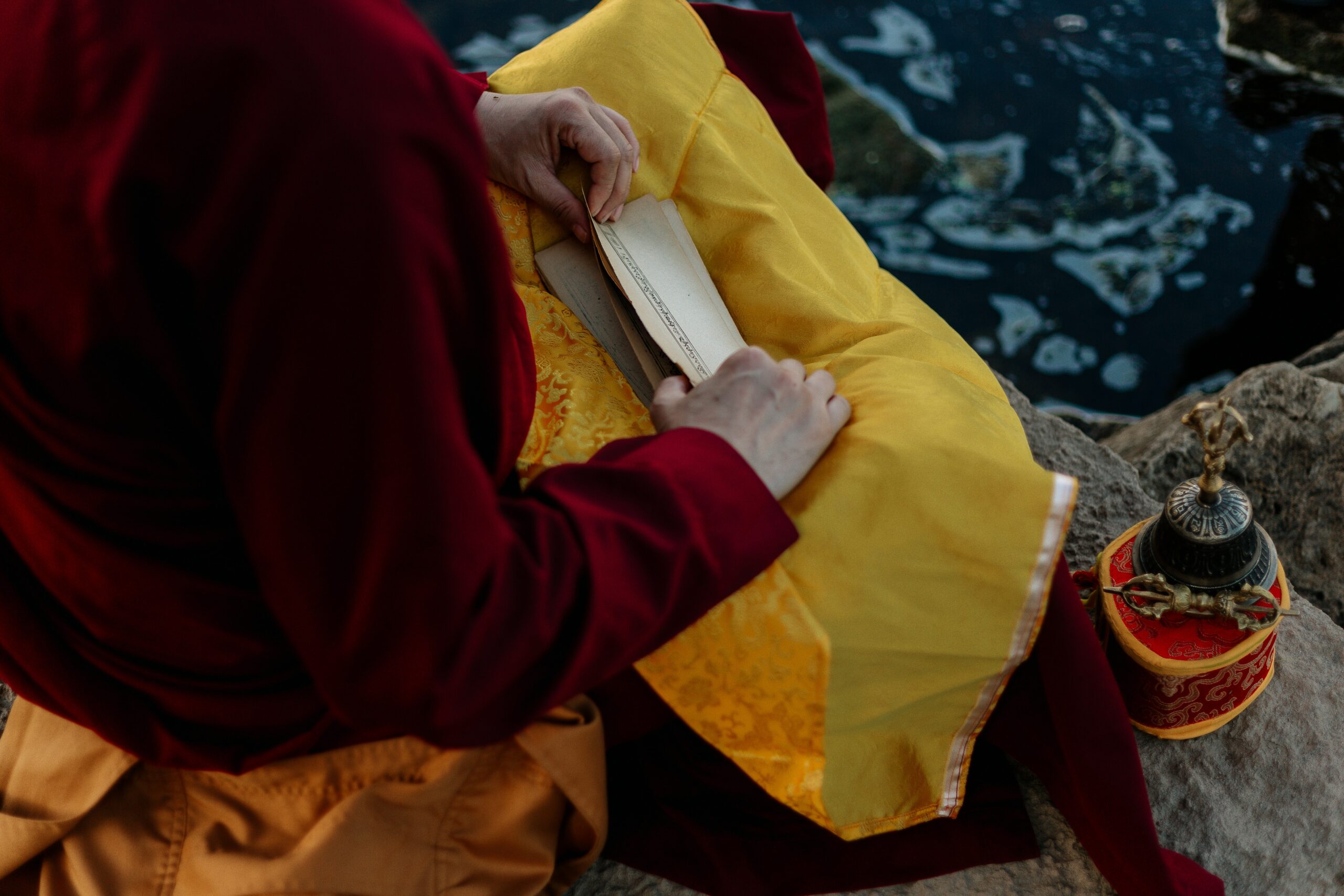
Self


Self
From an early age, I was drawn to the mysteries of faith. Growing up in an Orthodox family, religion fascinated me—not as a set of rigid rules, but as a vast, intricate puzzle filled with deeper meanings. My curious mind questioned everything, seeking truth beyond doctrine.
As I explored different religions, I began to notice striking similarities—universal threads that wove together concepts of divinity, self-awareness, and the interconnectedness of all things. Over the years, my spiritual journey led me to a paradox: I resonate with all religions yet fully identify with none. To me, they all point to the same truth—a supreme, loving presence that exists within and around us all.
I first encountered mantras years ago but didn’t grasp their full significance. They were just mystical sounds to me, quickly forgotten after a few meditation attempts.
That changed when I discovered The Mantram Handbook by Eknath Easwaran. His teachings illuminated the profound simplicity and effectiveness of mantras, showing me how they could be a source of strength and clarity.
One mantra stood out to me: Rama, Rama, Rama.
It felt natural, almost effortless, to repeat in my mind, especially during moments of stress or emotional overwhelm. When I was pregnant with my daughter, Tara, I experienced some of the most intense emotional waves of my life. In those moments, the mantra became my anchor. Through deep breaths and silent repetition of Rama, Rama, I found peace amidst the storm.
The word mantra comes from Sanskrit: manas (mind) and tra (tool). Simply put, a mantra is a tool to quiet the mind, shift your energy, and bring you into a state of presence.
According to meditation teacher Sally Kempton, repeating a mantra sinks deep into the subconscious, activating shakti—a subtle but powerful force that carries us into expanded awareness.
Think of it as a mental reset button. In a moment of stress, anger, or distraction, silently repeating a mantra interrupts the chaos and realigns you with a state of calm and clarity.
Modern research confirms what ancient traditions have known for centuries. A study in the Journal of Cognitive Enhancement found that mantra meditation significantly reduces mental distractions by calming the brain’s default mode network—the area responsible for mind-wandering and overthinking.
Regular mantra practice has been shown to:
Reduce stress and anxiety
Lower heart rate and blood pressure
Improve focus and mental clarity
Promote emotional resilience
Strengthen willpower and discipline
Enhance deep sleep and bodily regeneration.
Mantras not only quiet the mind but can also play a key role in transforming your mindset during overwhelming situations. The repetition of a mantra helps you return to the present moment, calm your thoughts, and reconnect with your highest self.
Similarly, in my post [Navigating Change: Transforming Overwhelm into Empowerment], I share practical tools and strategies to help you navigate overwhelming emotions and turn them into opportunities for growth and empowerment. Together, these two practices can truly help you manage stress and embrace change.
Not all mantras are created equal. Easwaran emphasizes choosing a mantra with deep spiritual significance—one that resonates with your heart and aligns with ancient traditions.
Here are 12 powerful mantras, each carrying a unique vibration and meaning:
OM – ॐ
The primordial sound of the universe, symbolizing creation and cosmic unity.
Jesus
Derived from Yeshua, meaning “to deliver; to rescue.” This mantra fosters wisdom, compassion, and divine love.
Hail Mary
A devotion to Mother Mary, radiating grace and divine protection.
Om Mani Padme Hum
Translates to “The jewel in the lotus of the heart,” signifying inner peace and enlightenment.
Rama
Meaning “he who fills us with abiding joy,” this mantra is a source of deep inner peace.
Krishna
“He who draws us to himself,” representing divine love and spiritual preservation.
Barukh Attah Adonai
Meaning “Blessed are you, Lord,” this mantra invokes strength and divine guidance.
Ribono Shel Olam
“Lord of the Universe,” reminding us of our connection to the divine source.
Bismillah ir-Rahman ir-Rahim
“In the name of Allah, the merciful, the compassionate,” fostering surrender and grace.
Allah / Allahu Akbar
“God is great,” a powerful affirmation of divine unity and strength.
Hare Krishna, Hare Rama
A devotional chant of joy and surrender to divine love.
Gayatri Mantra
A sacred Sanskrit chant that invokes wisdom, clarity, and enlightenment.
Mantras are versatile—you can chant them aloud, whisper them, write them down, or listen to recordings. However, the most profound effects come from silent repetition with deep focus.
Try incorporating a mantra into your daily routine:
While walking or commuting
During stressful moments to regain composure
Before sleep for a peaceful mind
While doing repetitive tasks to stay present
Before dismissing mantras as “not for you,” give them a real try. Start with one that speaks to you and repeat it throughout your day. Let it be your companion in moments of joy, sorrow, stress, or stillness.
The simplest practices often carry the greatest transformations. Mantras require no special tools—just your presence and willingness to experience their power.
May you find the mantra that brings peace, abundance, and clarity to your life, just as Rama, Rama has blessed mine.
This is a space for women navigating change—personal growth, self-love, and conscious living. Explore holistic guides, intentional living & nature’s wisdom.

I’m Dana, I explore self-acceptance, intentional living, and personal transformation. Through self-love, mindfulness, and even mushrooms, I share tools, insights, and stories to inspire growth, clarity, and connection. This space is here to support you—whether you’re embracing change, creating balance, or finding peace. I hope something here resonates with you.
We noticed you're visiting from United States (US). We've updated our prices to United States (US) dollar for your shopping convenience. Use Euro instead. Dismiss